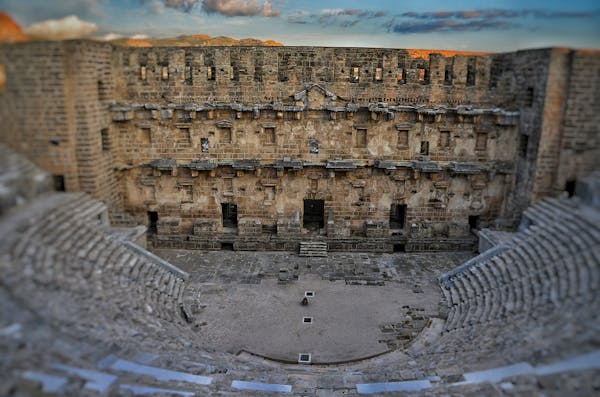Medieval English Theatre
Medieval English Theatre, spanning from the 5th to the late 15th century, offers a captivating glimpse into the artistic and cultural expressions of the Middle Ages. Despite limited resources and the dominance of the Church, theatrical performances during this period played a crucial role in the dissemination of stories, morality, and religious teachings. This brief discussion delves into the key characteristics, dramatic forms, and social significance of Medieval English Theatre.
1. Characteristics of Medieval English Theatre:
Religious Focus: Medieval theater was intrinsically linked to the Church and its liturgical calendar. The majority of early medieval drama was religious in nature, performed within the context of religious festivals and church services.
Performative Variety: Medieval theatre encompassed a range of dramatic forms, from the liturgical dramas of the early Church to the later development of mystery plays, morality plays, and interludes. Each form had its distinct purpose and style.
Spectacle and Pageantry: Theatrical performances were often elaborate and incorporated visual and auditory spectacles, including intricate costumes, masks, processions, and music. These elements aimed to engage the audience and convey religious messages.
2. Key Forms of Medieval English Theatre:
Mystery Plays: Mystery plays were dramatizations of biblical stories, often performed by guilds. They aimed to educate the public about Christian doctrine and moral lessons. The York Mystery Plays and Chester Mystery Plays are well-known examples.
Morality Plays: Morality plays used allegorical characters and scenarios to convey moral lessons and ethical choices. "Everyman" is a notable morality play that explores the journey of the soul towards judgment.
Interludes: Interludes were shorter, secular performances that entertained audiences with humor and satire. These plays provided a break from religious themes and allowed for social commentary.
3. Social Significance of Medieval English Theatre:
Education and Communication: Medieval theatre served as a means of education and communication, especially in an era with limited literacy. It allowed the Church to convey religious messages and moral values to a largely illiterate population.
Community and Ritual: The performance of mystery plays was a communal event, strengthening the bond within towns and cities. These plays became essential parts of religious festivals and rituals, engaging the public in spiritual narratives.
Cultural Legacy: Medieval English Theatre left an indelible cultural legacy. It marked the beginnings of English drama and influenced subsequent theatrical developments, such as the Renaissance drama of Shakespeare and Marlowe.
In conclusion, Medieval English Theatre, with its strong ties to religion, morality, and community, offered a unique blend of entertainment, education, and spirituality. It provided a vehicle for conveying religious and moral messages to a predominantly illiterate society while fostering a sense of community and shared experience.
